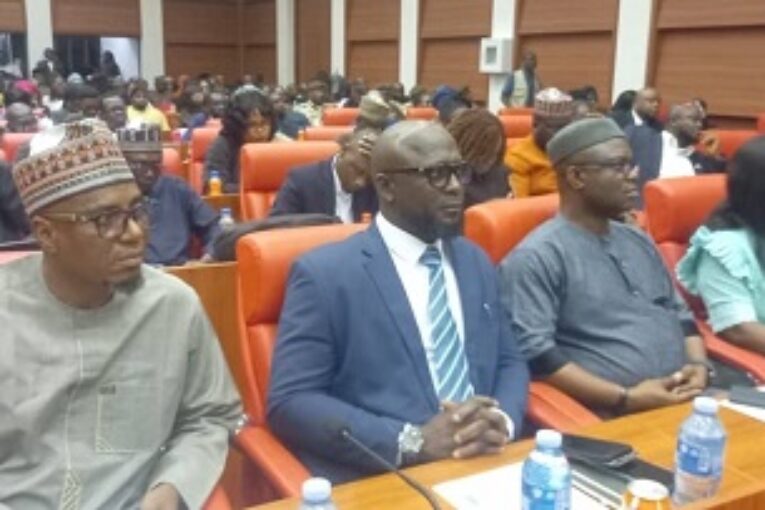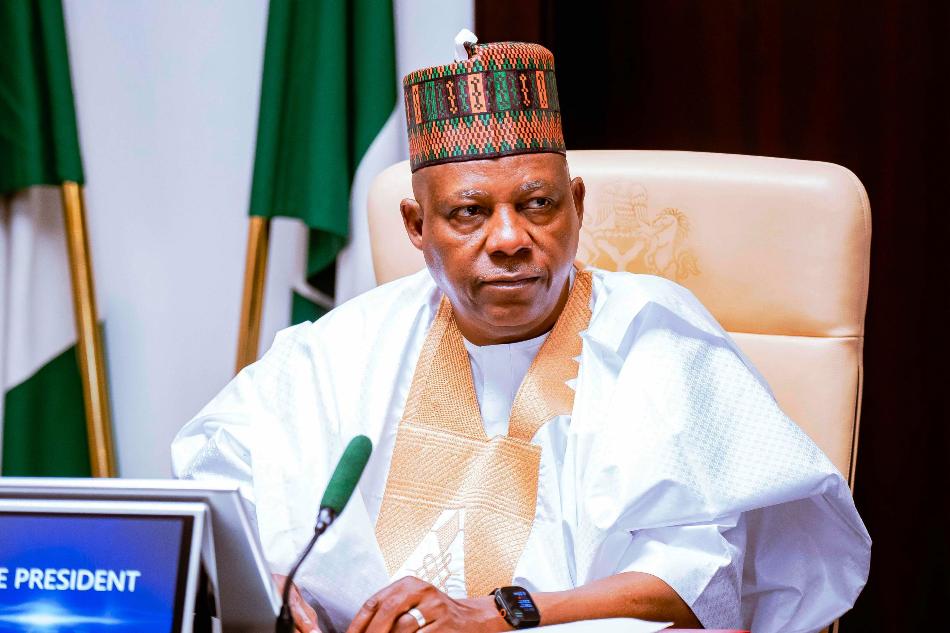
A youth-led civic organisation, the Brain Builders Youth Development Initiative (BBYDI), has urged the National Assembly to strengthen the National Digital Economy and E-Governance Bill, 2025, to promote inclusion, ethical governance of artificial intelligence (AI), and better institutional coordination.
BBYDI made the call on Monday during the public hearing on the Bill, held at Conference Room 022, Senate New Building, National Assembly Complex, Abuja.
The organisation was represented by its Executive Director, Barrister Nurah Jimoh-Sanni, and Programs Intern, Barrister Maryam Abubakar, who jointly presented a memorandum before the Senate Committee on National Digital Economy and E-Governance.
In their submission, BBYDI commended the Senate and the Federal Ministry of Communications, Innovation and Digital Economy for developing the Bill, describing it as “a milestone toward achieving a secure, inclusive, and innovation-driven digital economy.”
However, the group noted that several provisions of the draft law could be strengthened to ensure that Nigeria’s digital transformation is inclusive and sustainable.
“A truly digital Nigeria must leave no one behind — not rural communities, not women, not persons with disabilities,” said Barrister Nurah Jimoh-Sanni, while addressing the committee.
She added that while the Bill establishes key frameworks for digital governance, gaps in coordination and accessibility could hinder its implementation.
In its 10-point memorandum, BBYDI raised concerns about overlapping regulatory roles among agencies such as NITDA, the Nigeria Data Protection Commission (NDPC), and the Federal Competition and Consumer Protection Commission (FCCPC).
To address this, the group recommended the creation of a National Digital Economy Council, chaired by the Vice President, to harmonise policies and ensure inter-agency collaboration.
The organisation also called for the Bill to be explicitly aligned with the Nigeria Data Protection Act (NDPA) 2023, to maintain consistent standards for data privacy and cybersecurity across public institutions.
On digital inclusion, BBYDI proposed the establishment of a National Digital Inclusion Fund to expand broadband access, promote digital literacy, and support underserved populations—particularly women, rural dwellers, and persons with disabilities.
Speaking on the Bill’s sections on artificial intelligence, BBYDI said Nigeria must adopt clear ethical and accountability standards in AI governance.
The organisation recommended the creation of a National AI Ethics Board, mandatory AI impact assessments for high-risk applications such as biometric surveillance, and annual AI transparency reports to track compliance.
Nurah also emphasised the importance of youth participation in digital governance.
“Young people are not just consumers of technology; we are innovators and contributors to Nigeria’s digital future,” she said.
“This Bill should reflect that by creating space for youth-led and women-led startups to access regulatory sandboxes and innovation testbeds.”
BBYDI also called for stronger provisions on open data policies, citizen feedback mechanisms, and performance dashboards to track digital service delivery across Ministries, Departments, and Agencies (MDAs).
The group suggested a tiered penalty system for offences, noting that the fines prescribed in the Bill may be unrealistic for smaller enterprises and public institutions.
It further recommended the establishment of ICT units in all MDAs, alongside mandatory digital maturity audits to assess institutional readiness.
BBYDI said it supports the passage of the Bill but wants lawmakers to ensure it is implemented inclusively and transparently.
“With the right safeguards and coordination, this Bill can accelerate Nigeria’s digital transformation, strengthen public trust, and promote ethical use of emerging technologies,” the memorandum concluded.




